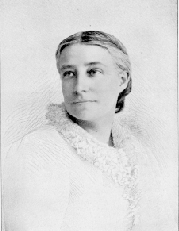A Quote by Paulo Coelho
She said she was neither happy nor unhappy, and that was why she couldn't go on. Each person knows the extent of their own suffering, or the total absence of meaning in their lives.
Related Quotes
As he was about to leave, she said, "Murtagh." He paused and turned to regard her. She hesitated for a moment, then mustered her courage and said, "Why?" She though he understood her meaning: Why her? Why save her, and now why try to rescue her? She had guessed at the answer, but she wanted to hear him say it. He stared at her for the longest while, and then, in a low, hard voice, he said, "You know why.
When the soul is naughted and transformed, then of herself she neither works nor speaks nor wills, nor feels nor hears nor understands; neither has she of herself the feeling of outward or inward, where she may move. And in all things it is God who rules and guides her, without the meditation of any creature.... And she is so full of peace that thought she pressed her flesh, her nerves, her bones, no other thing come forth from them than peace.
The Girl of the Period, sauntering before one down Broadway, is one panorama of awful surprises from top to toe. Her clothes characterize her. She never characterizes her clothes. She is upholstered, not ornamented. She is bundled, not draped. She is puckered, not folded. She struts, she does not sweep. She has not one of the attributes of nature nor of proper art. She neither soothes the eye like a flower, nor pleases it like a picture. She wearies it like a kaleidoscope. She is a meaningless dazzle of broken effects.
Hillary Clinton said that her childhood dream was to be an Olympic athlete. But she was not athletic enough. She said she wanted to be an astronaut, but at the time they didn't take women. She said she wanted to go into medicine, but hospitals made her woozy. Should she be telling people this story? I mean she's basically saying she wants to be president because she can't do anything else.
Breathe in deeply to bring your mind home to your body. Then look at, or think of, the person triggering this emotion: With mindfulness, you can see that she is unhappy, that she is suffering. You can see her wrong perceptions. You can see that she is not beautiful when she says things that are unkind.
People said things they didn't mean all the time. Everybody else in the world seemed able to factor it in. But not Lena. Why did she believe the things people said? Why did she cling to them so literally? Why did she think she knew people when she clearly didn't? Why did she imagine that the world didn't change, when it did? Maybe she didn't change. She believed what people said and she stayed the same." (Lena, 211)
Daisy was a consciously happy young woman without any of the usual endowments that make for conscious happiness, money apart. She was not pretty, she was not clever, she had no friends, no talents, nor even an imagination to make her think she was happy when she was really miserable. As she was never miserable, she had no need of an imagination.
The techniques are all means of dealing with one simple idea: She wrote it. (That is, the "wrong" person--in this case, female--has created the "right" value--i.e., art.)
Denial of Agency: She didn't write it.
Pollution of Agency: She shouldn't have written it.
Double Standard of Content: Yes, but look what she wrote about.
False Categorizing: She is not really she [an artist] and it is not really it [serious, of the right genre, aesthetically sound, important, etc.] so how could "she" have written "it"?
Or simply: Neither "she" nor "it" exists (simple exclusion).





































